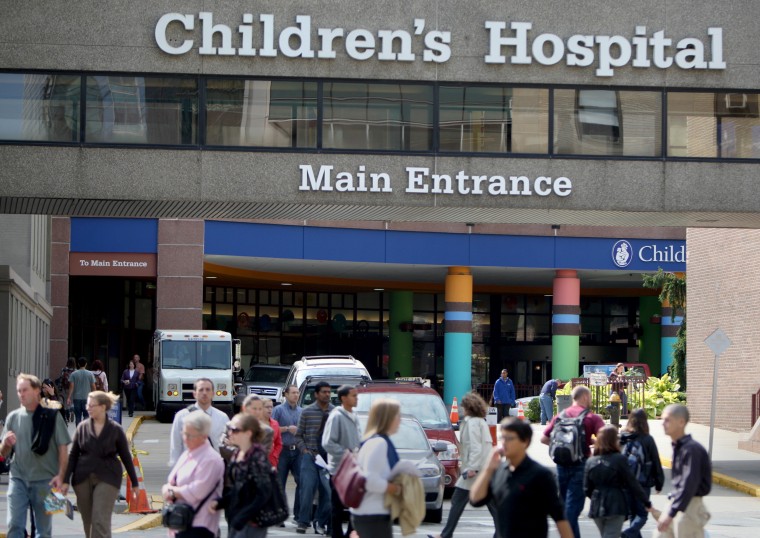The detention of an Iranian scheduled to go to a Boston hospital as a research scholar is not related to President Donald Trump's executive order restricting entry to the United States of those from that country and others, U.S. Customs and Border Protection said Tuesday.
Boston Children's Hospital said Dr. Mohsen Dehnavi, who has a J-1 visa, his wife and their three children were detained at Logan International Airport and were scheduled to be returned to Iran. NBC Boston reported that he is a cancer researcher.
CBP said in a statement: "This individual was deemed inadmissible to the U.S. based on information discovered during the CBP inspection for reasons unrelated to the Executive Order." It did not elaborate on why he was prevented from entering.
The agency said those seeking to enter the United States "bear the burden of proof to establish that they are clearly eligible to enter" the country. It listed health-related grounds, criminality, security reasons and documentation requirements among reasons someone could be denied entry.
Related: 15 States Join Hawaii's Challenge to Travel Ban Enforcement
Dehnavi was traveling on a J-1 visa, the hospital said. The J-1 visa is a non-immigrant visa category for individuals approved to participate in work- and study-based exchange visitor programs, according to the State Department.
Customs and Border Protection said people who had been detained would be returned on the next available flights. The hospital said in a statement earlier that it was hopeful that Dehnavi would be allowed to stay.
"Boston Children's hopes that this situation will be quickly resolved and Dr. Dehnavi and his family will be released and allowed to enter the US," the hospital said. "The Hospital is committed to doing its utmost to support Dr. Dehnavi and his family."
A private attorney who the American Civil Liberties Union said is representing Dehnavi did not immediately respond to a message left at his office Tuesday evening.

The Supreme Court allowed parts of Trump's executive order to take effect in June. The Supreme Court has agreed to take up government appeals of lower-court rulings that blocked implementation of the order, meaning it can be enforced for at least several months before the justices hear the case when their new term begins in the fall.
The executive order restricts entry to the United States for 90 days of those from six predominantly Muslim nations: Iran, Sudan, Syria, Libya, Somalia and Yemen.
The order that the Supreme Court allowed to be partly implemented is a second, revised order. The first order was blocked by a federal judge in Seattle, and a 9th U.S. Court of Appeals panel refused to reninstate it.
The Supreme Court said the ban could not apply to anyone with "a credible claim of a bona fide relationship with a person or entity in the United States."
The definitions announced by the State Department on June 29 said parents, parents-in-law, spouses, fiancés, children and children-in-law would be exempt from the ban on visas.
Grandparents, aunts, uncles, cousins, nieces, nephews and siblings-in-law would be subject to the ban.
